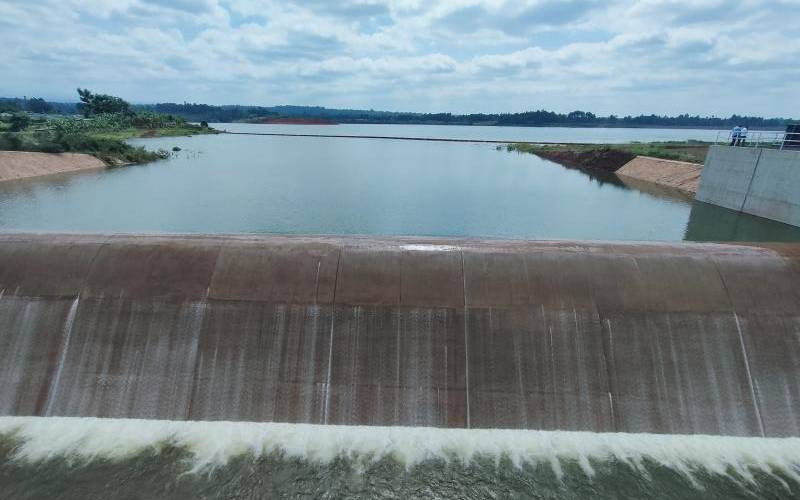
President William Ruto on Saturday commissioned one of the most transformative dam projects in Mt Kenya region and, indeed, for the entire country. It has taken four years and Sh7.8 billion to construct Thiba Dam in Gichugu Constituency, Kirinyaga County.
The 15.6 million cubic metres dam was initiated by former President Uhuru Kenyatta on September 25, 2018. The privilege fell on President Ruto to open the multi-billion shilling and game-changer project. And the significance in continuity is not lost on many Kenyans concerned about the link between development and transition of political power.